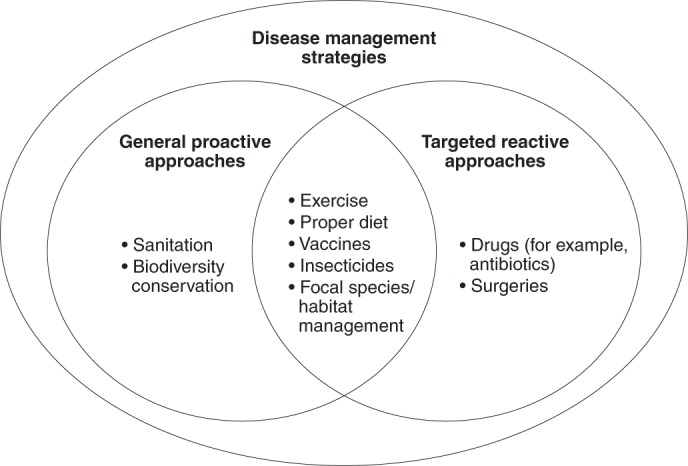Fig. 2. Venn diagram depicting two primary disease management strategies, general proactive and targeted reactive approaches, and examples of each.

Most disease management strategies are either proactive or reactive but some can be both. If dilution occurs more frequently than amplification, we postulate that the value of general biodiversity conservation might be to prevent: (1) multi-host, zoonotic and wildlife diseases from becoming problematic; (2) diseases where specific key hosts are hard to manage; and (3) diseases where little is known about their ecology, because too little is known to hone any intervention to specific species. In contrast, when the key hosts are manageable, interventions might be targeted to specific species or habitats that are known to amplify or dilute disease, which might make the intervention more effective than general biodiversity conservation. To the extent that biodiversity regulates the density of susceptible hosts that might then pass directly transmitted pathogens amongst themselves27 or influences microbiota that protect against infectious diseases (for example, refs. 20,34,47), some of these hypotheses will need re-evaluation. Although this figure is presented as a dichotomy, it does not imply that each option is equally probable.
